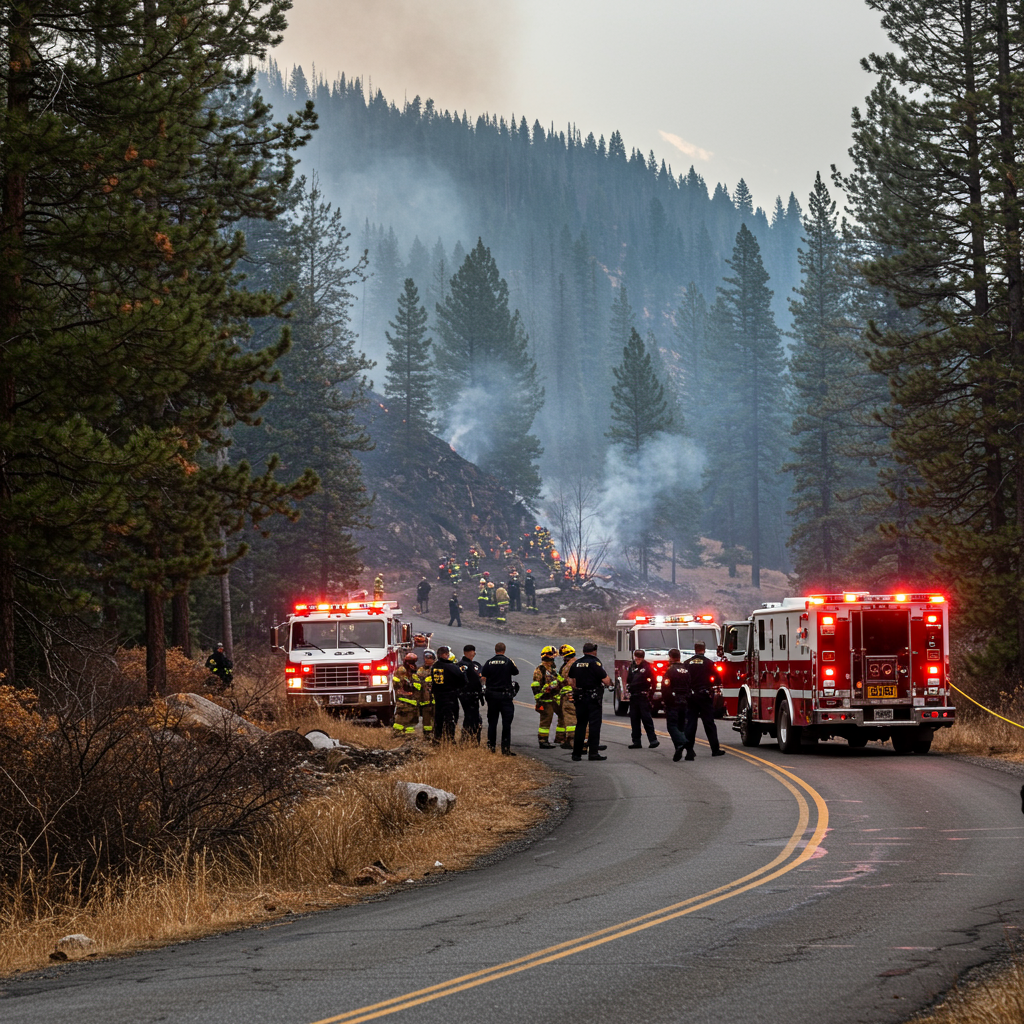Recent encounters between U.S. Customs and Border Protection (CBP) agents and American citizens are sparking urgent debates nationwide. Incidents where individuals asserting their U.S. citizenship have reportedly been detained, handcuffed, and even faced alleged misconduct are drawing significant public scrutiny. These escalating confrontations highlight critical questions about due process, civil liberties, and the boundaries of federal immigration enforcement on American soil.
Escalating Encounters: U.S. Citizens and Border Protection
The landscape of immigration enforcement has become increasingly complex, with federal agencies often operating with broad authority. While essential for national security, the expansion of these powers under various administrations has, at times, led to contentious interactions with the very citizens they are sworn to protect. These incidents often involve claims of excessive force, denial of rights, and unwarranted detention.
A Growing Pattern: Viral Videos and Citizen Concerns
While specific details around every viral video of a U.S. citizen being handcuffed by CBP agents, such as those alluded to in Charlotte, are often localized, they collectively contribute to a broader narrative. This narrative suggests an increasing number of situations where individuals asserting their American citizenship find themselves in contentious or allegedly unwarranted detentions. These events fuel widespread concern over the consistency and legality of federal agents’ actions. They underscore a pressing need for transparency and clear protocols when CBP detentions involve U.S. citizens, ensuring that constitutional rights are never compromised.
Chicago’s Little Village: Confrontation, Tear Gas, and Citizen Detentions
A stark example of heightened tensions unfolded in Chicago’s Little Village neighborhood on October 23, 2025. Federal immigration agents, led by U.S. Border Patrol Commander-at-Large Gregory Bovino, engaged in a confrontational operation. This action, part of the month-long “Operation Midway Blitz,” targeted a significant Mexican community hub and renewed fears among residents. At least five individuals were detained, including two U.S. citizens and two local high school students.
The situation quickly escalated into a violent face-off with dozens of protesters. Witnesses and local leaders reported agents deploying tear gas and pepper spray into the crowd. Baltazar Enriquez, president of the Little Village Community Council, accused Commander Bovino of personally initiating the tear gas deployment. A video reportedly captured Bovino underhand tossing a canister, forcing protesters to disperse. Ald. Byron Sigcho-Lopez confirmed the brief detention of a 16-year-old U.S. citizen student.
Community leaders and local politicians swiftly condemned the aggressive tactics. Ald. Michael Rodriguez noted that two of his U.S. citizen staff members had also been detained the previous day. The incident resulted in property damage to federal vehicles and a Chicago police arrest of one woman for allegedly battering an officer. This high-profile event drew increased scrutiny from the judiciary, with U.S. District Judge Sara Ellis extending Bovino’s deposition time. Leaders pledged continued resistance and support for affected families, anticipating further federal enforcement.
Vermont Border: A U.S. Citizen’s Alleged Ordeal and Constitutional Concerns
Further underscoring these concerns is the troubling case of Bachir Atallah, a self-proclaimed Trump voter, and his wife, Jessica Fakhri, in Vermont. Returning from Canada, Atallah claims he was subjected to a five-hour ordeal by CBP agents. He alleges being handcuffed without clear cause, denied legal counsel, and pressured to waive constitutional rights, including access to his email. This detention allegedly led to a medical emergency, with EMS noting high blood pressure and risk of stroke.
Atallah’s attorney, his sister Celine Atallah, vehemently disputed CBP’s characterization of the event as “routine.” She labeled the handcuffing of a U.S. citizen without cause, denial of counsel, and alleged medical neglect as “unlawful, abusive, and un-American.” The incident highlighted a painful irony, as Atallah, a supporter of policies meant to secure borders, found his own civil liberties seemingly disregarded. CBP Assistant Commissioner Hilton Beckham, however, denied these claims as “blatantly false and sensationalized.” Beckham maintained that officers acted within protocols, secured consent for an electronic device search, and respected attorney-client privilege.
Despite CBP’s denials, the Atallah family is pursuing legal action. Their experience serves as a stark warning about potential threats to civil liberties, regardless of political affiliation. Celine Atallah stressed that constitutional rights should not come with a party label. This incident underscores the urgent need for clear accountability when CBP detentions involve medical emergencies or alleged rights violations.
Know Your Rights: Navigating Encounters with CBP
Understanding your constitutional rights is paramount during any interaction with law enforcement, including federal agents like CBP. While agents have authority at borders and in certain “border zones,” U.S. citizens retain fundamental protections. Being informed can help ensure a smoother, safer encounter and protect your civil liberties.
What to Do if Detained by Federal Agents
If you, as a U.S. citizen, find yourself in a CBP detention or being questioned, remember these critical steps:
Identify Yourself: State that you are a U.S. citizen.
Remain Silent: You have the right to remain silent. Do not answer questions beyond identifying yourself.
Do Not Consent to Searches: You are not required to consent to searches of your property, vehicle, or electronic devices unless agents have a warrant or probable cause.
Request Legal Counsel: Clearly state that you wish to speak with an attorney. Do not waive this right.
Do Not Resist: While you can assert your rights verbally, do not physically resist agents if they attempt to detain or search you.
Document: If safely possible, try to record the interaction or note details like agent names, badge numbers, time, and location. This information is crucial for future complaints.
Protecting Your Civil Liberties
The ability to assert your rights effectively is crucial, particularly in areas where CBP operates. Awareness of these rights acts as a vital safeguard against potential overreach or misconduct. Every U.S. citizen, regardless of their background, deserves to be treated with dignity and due process. Knowing these protections empowers individuals to act responsibly and advocate for themselves during what can be stressful encounters.
The Broader Implications: Accountability, Oversight, and Civil Liberties
These incidents, whether in a bustling Chicago neighborhood or a quiet Vermont border crossing, paint a concerning picture. They signal an expanding scope of federal immigration enforcement that appears to impact U.S. citizens with increasing frequency and severity. The allegations of excessive force, denial of counsel, and disregard for medical needs raise fundamental questions about the accountability of federal agencies like CBP. The lack of independent oversight and the often conflicting narratives between citizens and government agencies exacerbate public distrust.
The cases of Little Village and Bachir Atallah illustrate the need for robust mechanisms to ensure due process and constitutional adherence. Judicial scrutiny, public advocacy, and transparent internal review processes are vital. Protecting the Fourth Amendment rights against unreasonable searches and seizures, alongside the Sixth Amendment right to counsel, is fundamental. As federal authority continues to evolve, maintaining these civil liberties for all U.S. citizens remains a core challenge. These incidents highlight the ongoing tension between national security imperatives and individual constitutional protections.
Frequently Asked Questions
What common rights are U.S. citizens advised to assert during an encounter with CBP?
U.S. citizens are advised to clearly state their citizenship and assert their right to remain silent, refusing to answer questions beyond identification. It is crucial not to consent to searches of property or electronic devices without a warrant. Additionally, citizens should explicitly request to speak with an attorney and avoid physically resisting agents. Documenting the encounter, if safe, is also recommended to gather details for potential future complaints.
Where have recent high-profile incidents involving U.S. citizens and CBP taken place?
Recent high-profile incidents involving U.S. citizens and CBP have occurred in various locations. One notable event took place in Chicago’s Little Village neighborhood on October 23, 2025, involving Border Patrol agents, tear gas, and the detention of U.S. citizens and students. Another significant incident involved Bachir Atallah, a U.S. citizen, who claims he was unjustly detained and medically endangered by CBP agents in Vermont while returning from Canada.
Should U.S. citizens pursue legal action if they believe their rights were violated by CBP?
Yes, U.S. citizens who believe their constitutional rights were violated by CBP agents should strongly consider pursuing legal action. The case of Bachir Atallah in Vermont demonstrates that families are successfully taking legal steps against the agency. Legal action can provide an avenue for accountability, compensation for damages, and potentially contribute to policy changes within federal agencies. Consulting with an attorney specializing in civil liberties or immigration law is the recommended first step.
The escalating number of contentious encounters between U.S. citizens and federal agents underscores a critical moment for civil liberties in America. As documented in Chicago and Vermont, these incidents move beyond isolated events, forming a pattern that demands closer scrutiny and accountability. Protecting the constitutional rights of every individual, regardless of their background or political affiliation, remains paramount. Public awareness, combined with sustained legal and political pressure, is essential to uphold these fundamental protections against potential government overreach.


